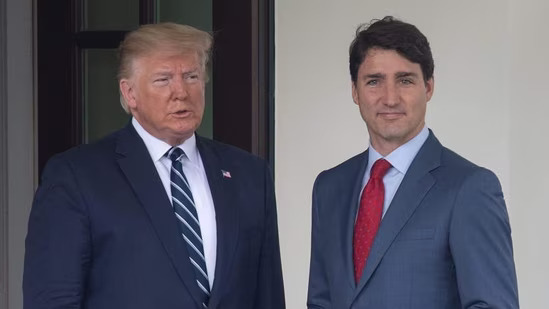The Canadian government has announced a new plan to address US President-elect Donald Trump’s concerns about border security, unveiling a C$1.3 billion ($908 million) initiative on Tuesday. The move comes as Trump threatens to impose 25% tariffs on all Canadian goods unless stronger measures are implemented to curb illegal migration and fentanyl trafficking across the northern border.
At the center of the plan is an “aerial intelligence task force,” which will be operated by the Royal Canadian Mounted Police (RCMP). This task force will use helicopters, drones, and mobile surveillance towers to enhance border monitoring. Public Safety Minister Dominic LeBlanc, who introduced the plan, emphasized the importance of safeguarding Canada’s borders and supporting law enforcement.
“Canada takes pride in our border and law enforcement agencies that protect our communities and support our economy,” LeBlanc said. “They also expect their government to back them in doing this critical work.”
What additional measures is Canada taking?
The plan includes several steps to strengthen border security and cooperation with the United States. These measures involve expanding the RCMP’s intelligence capabilities, increasing penalties for money laundering, and forming a task force with law enforcement and financial experts to combat financial crimes. The government also proposed creating a “North American Joint Strike Force” with the US to address transnational organized crime, particularly focusing on fentanyl trafficking.
RCMP Commissioner Mike Duheme explained that the strike force would develop specialized officers to disrupt fentanyl operations both domestically and internationally. Immigration Minister Marc Miller also announced new policies to curb practices like “flagpoling,” where temporary residents leave and re-enter Canada to access immigration services.
The plan further includes deploying advanced technology, such as artificial intelligence and imaging tools, to detect illegal drugs. New canine teams will be trained to enhance drug detection, and a specialized unit within Canada’s health department will work to prevent the import of precursor chemicals used in drug production.
How has the US responded?
LeBlanc shared the details of the plan with Trump’s incoming border czar, Tom Homan, and expressed optimism about their discussions. “I’m confident that as we continue to work with our American partners, they’ll see our commitment to securing the border,” LeBlanc said. He added that Canada and the US share common goals in ensuring border safety.
The announcement follows the resignation of Canada’s finance minister, Chrystia Freeland, who criticized Prime Minister Justin Trudeau for inadequate preparation for Trump’s presidency. Freeland was replaced by Dominic LeBlanc, who is now spearheading these border initiatives.
With these new measures, Canada aims to demonstrate its resolve in addressing US concerns while maintaining a collaborative approach to border security.

